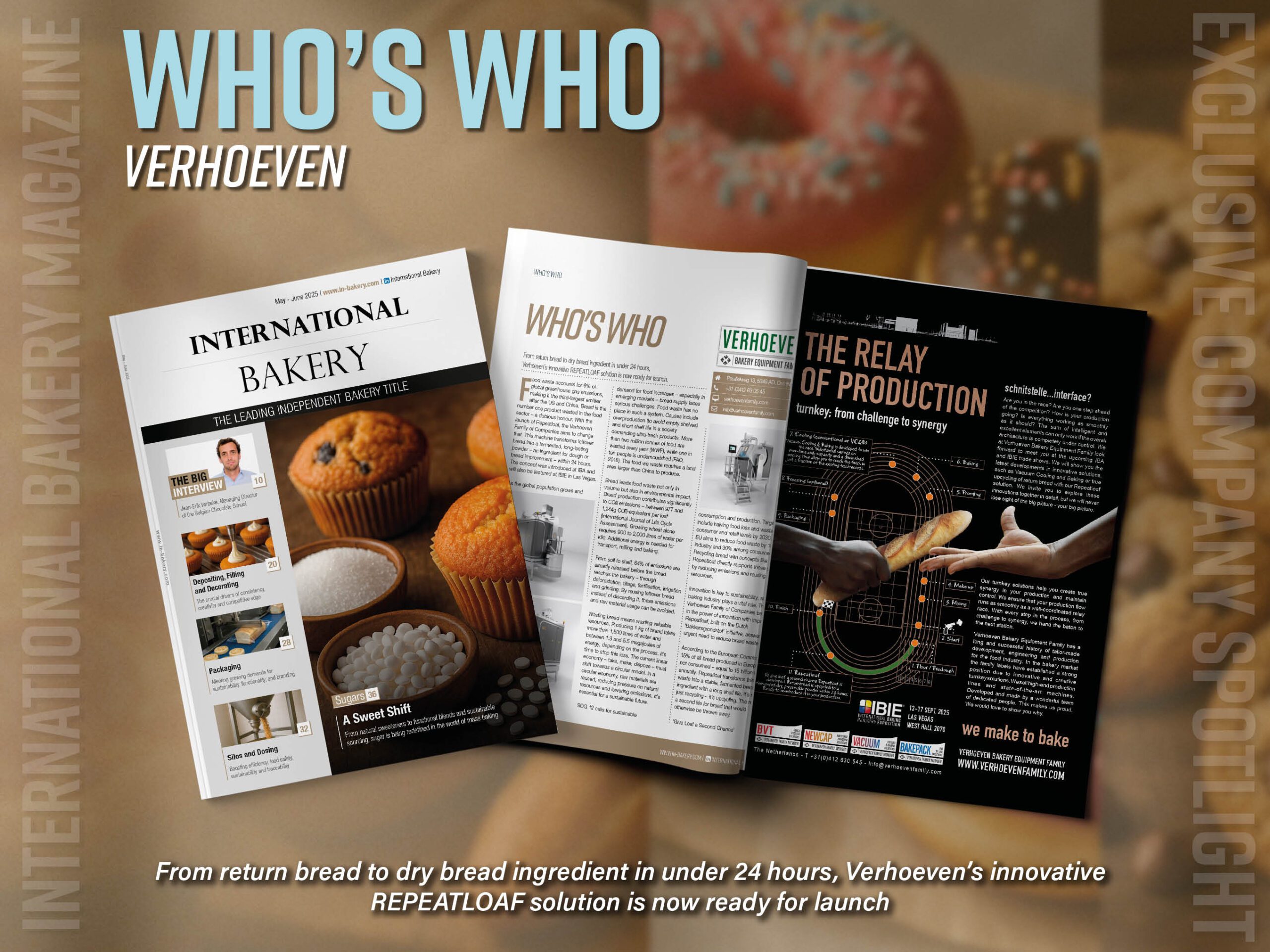International Bakery speaks with George Fuller, Chairman of the Craft Bakers Association about how the bakery industry has fared during the global pandemic and what support the association offers.
Could you tell us a brief background of the association and how it came to be?
A group of likeminded and progressive bakers from Birmingham formed the association in 1887. It was originally called the National Association of Master Bakers and Confectioners and was the brainchild of an entrepreneur in his time, Thomas Fletcher, who headed up the newly formed association. The idea actually came to him while he was the President of a local trade society. He recognised the benefits of businesses working together and decided there was a need for a national body to promote and support the bakery trade. How right he was! They attracted so many members that four years later, in 1891, Scottish bakers gained their independence and formed their own association.
How does CBA look to support its members?
Our aim is to support our members across the full remit of running a bakery business, from product development through to the administrative aspects of business operations, as well as technical, HR and legislation advice. This is all delivered through our comprehensive members website with the support of our very capable head office team.
One of the member benefits that has been particularly valuable this year is the six-monthly members survey providing insights and forecasting trends for bakeries to tap in to.
How is the craft bakery market looking at the moment? Is it growing?
Evidence suggests that the craft bakery sector is enjoying a generally upward trend in spite of the challenges of the past year. There are some areas where this is not the case but that is mainly down to the circumstances of the pandemic. Our recent CBA survey bears this out and demonstrates our members’ tenacity at finding new opportunities and new ways to innovate. For instance, although 31% of bakers had closed a shop in the six months leading up to the survey, 36% had extended their online offering with great success.
Tell us what a day as the Chairman for the CBA typically involves for you?
As I still run my own bakery business, Fullers Bakery in East Yorkshire, I communicate with Karen Dear, our Director of Operations, via telephone and email and, more recently via Zoom or Teams – but we are in touch most days! The intensity of the contact varies week by week depending on what we have on our plates – it’s been a fairly communication heavy year this year, as you would expect during a national crisis. Like the rest of UK businesses, we have held board meetings remotely over Zoom during the pandemic to ensure that we were doing all we could to support our members with all the changes to legislation that impacted the retail sector in particular.
What is the most notable experience in your career history?
Having carved out a successful career in baking which stood me in good stead for my CBA chairmanship, my most significant achievement was starting up my own business in 1996 in partnership with my wife, Heather. Today there are five Fullers Bakery shops and we have a significant wholesale trade. We’re celebrating 25 years in business this year and have enjoyed every moment of it! Of course, I love being Chairman of the CBA too and being part of a bigger, more corporate outfit. I’ve been a member since 1996 and involved in the management since 2007.
How did Coronavirus impact bakeries and what did the CBA do to support them?
Coronavirus had different consequences for so many of our members. During lockdown, some businesses took the decision to close while others remained open. Many embarked upon quite innovative projects for their businesses – new online services, community shops, delivery rounds, enhanced take away services – to name but a few.
As well as our regular services such as our members survey, we were there every step of the way with our members, offering help and advice as they rolled out their new innovations.
Do you offer training to your members? What does it entail and why do you think it is important?
We do offer a range of training options for our members. These vary from peripheral activities such as forklift truck driving, which is catered for alongside food hygiene courses and health and safety.
Specific areas of bakery training, along with the new Trailblazer Level 2 Bakery Apprenticeship, can be offered through National Food and Drink Training, a training company that is part of our sister association in Scotland.
We think training is really important for a number of reasons. Keeping up with developments in areas such as food hygiene and health and safety is essential as well as staying up to date with baking innovations.
What trends are you seeing in the bakery industry and what are your thoughts on them?
Speciality breads, sourdough and artisan products with local provenance are three trends with huge potential. There is a lot of growth coming from these three areas, so I really welcome the developments. Sourdough, in particular, has helped revive people’s interest in bread as a whole and we have seen a resurgence in people shopping locally and valuing their local suppliers which can only bring good news for craft bakers.
How important is sustainability to the bakery industry?
This is an extremely important area for our industry even though it is being led by the bigger players. However, collectively, the craft sector has a strong voice and we must use it.
We have our own Climate Change Levy Agreement, which has been operating for 20 years. Sadly, however, owing to some of the rules of the scheme, many of our smaller bakeries have found participation to be of limited benefit.
What do you see for the future of craft and artisan bakeries?
I see a bright future for the industry, provided businesses adapt and adopt – something that members have shown a good appetite for during the pandemic. The renaissance in speciality breads and sours is definitely one to build upon.
Location is obviously an important part of the future. Bakers should capitalise on what they do best and, above all, focus on becoming a destination for shoppers, not just a shop! During the pandemic people have opted to shop locally so we need to keep up that momentum!
To stay up to date on the latest, trends, innovations, people news and company updates within the global bakery market please register to receive our newsletter here
Media contact
Kiran Grewal
Editor, International Bakery
Tel: +44 (0) 1622 823 922
Email: editor@in-bakery.com






